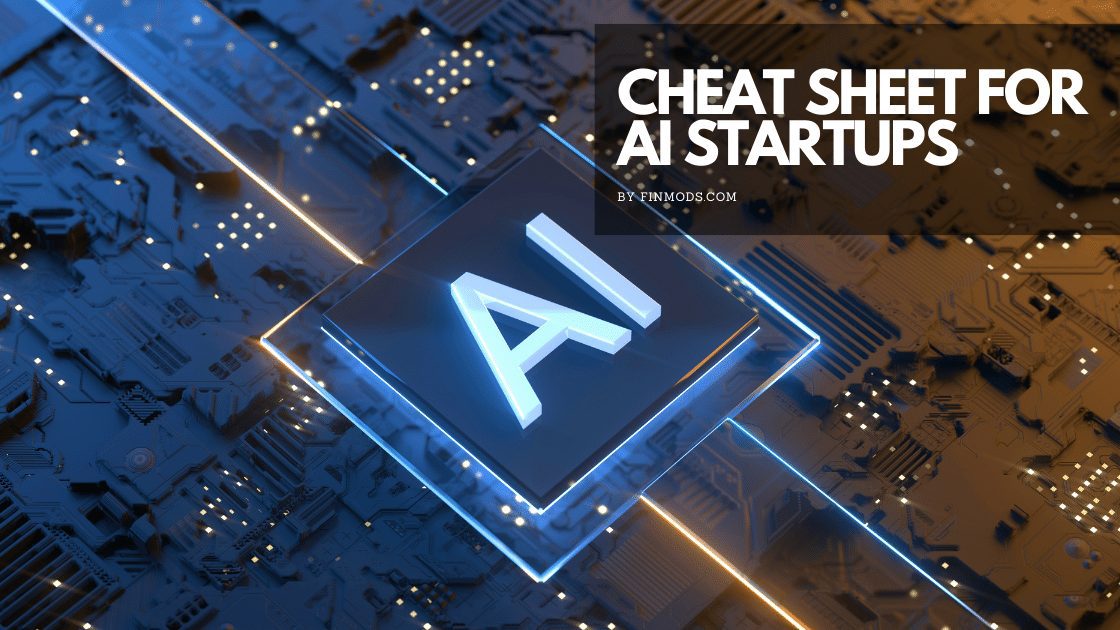- 1. What is AI?
- 2. What startup ideas are there for AI?
- 3. Who are the customers of AI startups?
- 4. What are the common problems of AI users?
- 5. Are there venture capital firms for AI startups?
- 6. What are the popular business models for AI startups?
- 7. What are the benefits of AI startups?
- 8. What are the strengths of AI startups?
- 9. What are the weaknesses of AI startups?
- 10. What are the opportunities for AI startups?
- 11. What are the risks of AI startups?
- 12. How can you grow an AI startup?
- 13. What are the challenges of AI startups?
- 14. How can AI help startups?
1. What is AI?
Artificial Intelligence (AI) is a field of computer science, and engineering focused on creating intelligent agents, which are systems that can reason, learn, and act autonomously. AI research deals with the question of how to create computers that are capable of intelligent behavior. Artificial intelligence has a wide range of potential applications. These applications can be divided into two broad categories: cognitive and decision-making.
Cognitive applications involve using AI to help humans process and understand information. For example, AI can be used to develop better search engines that can more accurately find the information that users are looking for. AI can also be used to develop natural language processing systems that can help humans communicate with computers and vice versa.
Decision-making AI applications utilize algorithms and data analytics to make predictions and recommendations. This can be helpful in various situations, such as personalizing content for users or making decisions about pricing and inventory. Additionally, decision-making AI applications can help automate tasks traditionally done by humans, such as approving loan applications or flagging suspicious activity.
2. What startup ideas are there for AI?
- A marketplace for AI-created art.
- A marketplace for AI-created music.
- A marketplace for AI-created fashion.
- Develop a marketplace that allows businesses to buy and sell AI-generated data.
- Create a marketplace for AI-based services, where businesses can offer services such as data analysis, predictive modeling, etc.
- A startup that creates a sales intelligence platform that uses AI to help sales teams better understand their customers and target new prospects.
- A startup that uses AI to help businesses automate their sales processes, from lead generation to closing deals.
- A business that provides AI-powered sales automation tools to help businesses increase their sales efficiency and effectiveness.
- A business that provides AI-powered customer segmentation and targeting tools to help businesses better identify and target potential customers.
- A hiking app that uses AI to map out the best hiking routes based on a user’s preferences.
- A hiking gear rental company that uses AI to match hikers with the right gear for their trip.
- A hiking guide
- A hiking company that uses AI to map out the best hiking trails based on a user’s preferences.
- A hiking boot company that uses AI to customize the fit of each boot.
- A business that creates personalized medicine using AI
- A business that uses AI to develop new drugs and treatments
- A business that uses AI to diagnose diseases
- A business that creates personalized medicine using AI and patient data
- A business that uses AI to diagnose patients
3. Who are the customers of AI startups?
The majority of AI startups are focused on providing enterprise solutions to large organizations. However, there is a growing number of AI startups that are beginning to target smaller businesses and individual consumers. As the technology behind AI continues to become more sophisticated and affordable, it is likely that we will see an increase in the number of AI startups catering to a wider range of customers.
4. What are the common problems of AI users?
There are several common problems that AI users face. One is the issue of data collection. In order to train an AI model, a significant amount of data is required. This data must be high quality and accurately labeled. Another common problem is selection bias, which occurs when training data is not representative of the real-world data the AI model will be applied to. This can lead to poor performance of the AI model.
5. Are there venture capital firms for AI startups?
This list contains 547 venture capital firms funding AI startups in the seed stage and/or early stage.
What is a seed stage startup?
A seed stage startup is a company in the very early stages of development – typically pre-revenue. The company may have a product or service, but it is not yet commercially viable. The term “seed stage” refers to the early stages of a company’s development when it tries to find its footing and grow its business. Seed-stage startups typically have a small team of employees and a limited budget.
What is an early stage startup?
An early-stage startup usually has developed a prototype that generates some revenue (post-revenue), but it might not be profitable yet.
6. What are the popular business models for AI startups?
There are a few popular business models for AI startups. One is to develop a platform that can be used by other businesses to develop their own AI applications. Another common model is to develop AI applications for specific industries or verticals. Yet another model is to provide AI-as-a-service, where businesses can subscribe to a service that provides them with access to AI capabilities.
7. What are the benefits of AI startups?
There are numerous benefits of AI startups. They include but are not limited to the following:
- AI startups can help businesses automate tasks and processes.
- AI startups can help businesses improve their decision-making processes.
- AI startups can help businesses gain insights from data that would otherwise be unavailable.
- AI startups can help businesses improve customer engagement and satisfaction.
- AI startups can help businesses reduce costs associated with manual labor and errors.
8. What are the strengths of AI startups?
AI startups have many advantages over more established businesses regarding innovation and developing new technologies. They are often more agile and better able to adapt to change, which means they can move quickly to capitalize on new opportunities. They also tend to be more open to risk-taking and experimentation, which can lead to breakthroughs in AI technology. Additionally, AI startups often attract top talent from around the world, which helps to further fuel their innovation.
9. What are the weaknesses of AI startups?
There are a few key weaknesses of AI startups. Firstly, they often lack the financial resources to sustain themselves in the long term. Secondly, they tend to be inexperienced and have difficulty attracting and retaining top talent. Thirdly, they often have difficulty commercializing their technology and scaling their businesses. Finally, they typically have a limited understanding of the regulatory landscape and lack the necessary compliance infrastructure.
10. What are the opportunities for AI startups?
The opportunities for AI startups are vast and varied. With the advent of new technologies, AI startups have the potential to change the way we live and work. From personal assistant services to predictive analytics, AI startups are poised to make a significant impact on the world economy. In addition, AI startups have the opportunity to help solve some of the world’s most pressing problems, such as climate change and healthcare.
11. What are the risks of AI startups?
There are several risks associated with AI startups. One of the primary risks is the potential for failure. AI startups often rely on a small number of key employees, and if these individuals leave the company, it can be difficult to continue operations. Additionally, AI startups may have difficulty securing funding from investors due to the perceived riskiness of the technology. Another risk is that AI startups may not be able to achieve commercial success due to competition from larger, more established companies.
12. How can you grow an AI startup?
To grow an AI startup, one must first identify a problem that can be solved with AI technology. Once a problem is identified, a team of experts must be assembled to develop a solution. The solution must be tested and refined until it is ready for market. To ensure success, the startup must have a clear business plan and secure funding.
13. What are the challenges of AI startups?
One of the primary challenges for AI startups is ensuring that their technology can effectively solve the problem it intends to address. Additionally, AI startups must contend with the formidable task of building a team of qualified experts who can develop and implement their solutions. Another significant challenge for AI startups is securing the necessary funding to support their operations. In many cases, AI startups rely on venture capital firms for financial backing.
14. How can AI help startups?
AI can help startups in many ways. First, AI can help with the development of new products and services. Startups often have great ideas but lack the resources to bring them to fruition. AI can help with this by providing the necessary resources and expertise. Second, AI can help startups to scale their operations. Startups often have limited resources and need to grow quickly to survive. AI can help them to do this by providing the necessary resources and expertise.
Peter is a solopreneur in Salzburg, Austria, a husband, and a family father. He runs a little publishing company, and blogs about starting and running online businesses. In his spare time, he enjoys hiking with friends and reading the Bible, and sometimes he takes a trip in his roaring old black 2001 Jaguar XJ8.





